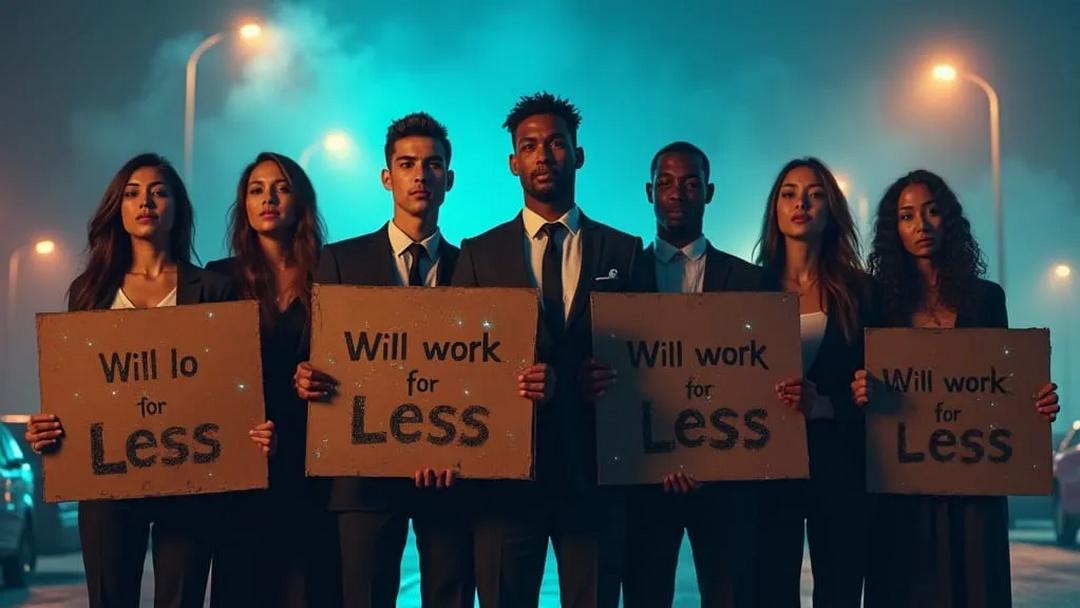The Michigan Supreme Court Wednesday shot down the state attorney general’s high-profile effort to criminally prosecute seven former public officials for their role in the Flint water crisis.
In a series of orders, the court left in place lower court dismissals of the charges, which were thrown out after an earlier Supreme Court ruling found that a prosecution team appointed by Attorney General Dana Nessel had improperly relied on a one-person grand jury to bring charges in 2021.
Wayne County Prosecutor Kym Worthy, appointed by Nessel as co-lead of the state’s prosecution team along with Solicitor General Fadwa Hammoud, had used the unusual tactic, in which prosecutors presented evidence in secret to a single judge to secure charges against multiple former public officials.
Flint Water Crisis Summary
The Flint Water Crisis was a public health crisis that started in 2014 after the drinking water for the city of Flint, Michigan was contaminated with lead and possibly Legionella bacteria. In April 2014, during a financial crisis, state-appointed emergency manager Darnell Earley changed Flint’s water source from the Detroit Water and Sewerage Department (sourced from Lake Huron and the Detroit River) to the Flint River. Residents complained about the taste, smell, and appearance of the water, and many raised concerns about its safety.
However, state and local officials repeatedly assured residents that the water was safe to drink. It was not until 2015, after months of protests and pressure from activists and public health experts, that the state finally admitted that the water was contaminated with lead.
The Flint Water Crisis had a devastating impact on the city’s residents, particularly children. Lead poisoning is especially harmful to children, and can cause a range of health problems, including learning disabilities, behavioral problems, and reduced IQ. An estimated 6,000 to 12,000 children were exposed to lead-contaminated water during the crisis.
The Flint Water Crisis is a story of government negligence and environmental injustice. The city’s decision to switch to the Flint River was made in an effort to save money, but it came at a great cost to the city’s residents. The crisis also exposed the deep racial and economic inequality in Flint, as the city’s predominantly Black and low-income residents were disproportionately affected by the contamination.
Flint Water Crisis FAQs
What caused the Flint Water Crisis?
The Flint Water Crisis was caused by a combination of factors, including:
- The city’s decision to switch to the Flint River as its water source. The Flint River is more corrosive than the Detroit water system, and this caused the city’s lead pipes to corrode and leach lead into the water.
- The state’s failure to properly treat the Flint River water. The Flint River water is more acidic than the Detroit water system, and this required the state to add corrosion inhibitors to the water to prevent lead from leaching into the pipes. However, the state failed to add enough corrosion inhibitors, which allowed the lead to leach into the water.
- The state’s failure to listen to residents’ concerns about the water quality. Residents complained about the taste, smell, and appearance of the water from the beginning, but the state repeatedly assured them that the water was safe to drink.
Who was affected by the Flint Water Crisis?
The Flint Water Crisis affected all residents of Flint, but it was particularly harmful to children. Lead poisoning is especially harmful to children, and can cause a range of health problems, including learning disabilities, behavioral problems, and reduced IQ. An estimated 6,000 to 12,000 children were exposed to lead-contaminated water during the crisis.
- What has been done to address the Flint Water Crisis?
- The state has taken a number of steps to address the Flint Water Crisis, including:
- Switching Flint back to the Detroit water system.
- Replacing lead pipes in Flint homes.
- Providing bottled water and water filters to residents.
- Providing medical care and educational support to children who were exposed to lead-contaminated water.
More Posts

Police say they can tell if you are too high to drive
Police say they can tell if you are too high to drive. Critics call it ‘utter nonsense’Haley Butler-Moore sped up to pass a semi on the highway when she suddenly saw the police lights. She’d left Albuquerque hours earlier, heading to a Halloween party in Denver. Tired...

A secured and safe vote thanks to new laws in Michigan
Governor Whitmer Signs Historic Election Bills Package to Ensure Every Vote Can be Cast and CountedIn Case You Missed It November 30, 2023 “Today, we are expanding voting rights and strengthening our democracy,” said Governor Whitmer. “Michiganders spoke clearly last...

Cannabis – The Rise and Fall and Trail of Survivors Pile Up
Thieves make off with 1,000 pounds of premium flower in cannabis from a corporate grower in Michigan. Then, the GM sells off 650+ pounds to pay employees.The recent theft of over 1,000 pounds of marijuana from 305 Farms, a corporate cannabis grower in West Michigan,...

What is Recidivism in Legal Terms?
What does Recidivism mean?In legal contexts, recidivism refers to a person’s relapse into criminal behavior, often after having been previously convicted and penalized for similar or other crimes. When someone re-offends, they are described as a "recidivist."...

Your Past Charges Could Affect Decisions for New Charges
Michigan Court of Appeals - PEOPLE v. JAMES THOMAS MASON, JR.Jail vs ProbationIn People v. James Thomas Mason, Jr., the Michigan Court of Appeals dealt with whether the district court could reasonably depart from the usual “no jail, no probation” presumption for a...

Can I be arrested for flying a drone in Michigan?
Someone asked us... Can I be arrested for flying a drone?As we have seen ... They can charge you and arrest you for whatever they want. But Can I Be Arrested or Fined for Flying a Drone? Yes, you can be arrested or fined for breaking Michigan’s drone laws. Under MCL...

If you have an LLC you must comply or face fines and possible prison
You work hard. Now get ready to work harder to prepare to give more.If you own or are a member of an LLC.You have a deadline of January 1, 2025Call us we can take care of it for you. 248-357-2550The new Beneficial Ownership Reporting requirements for LLCs and other...

Compounding Charges Laws in Michigan
Understanding Compounding Charges Laws in Michigan Compounding charges refer to the illegal act of accepting or agreeing to accept a benefit in exchange for not prosecuting a crime. In Michigan, this is considered a serious offense, and the law specifically prohibits...

Harris unveils new proposals targeting black men with cannabis legalization
"Harris unveils new proposals targeting Black men as she looks to shore up Democratic coalition" CNNAmid the ongoing national issues, Vice President Kamala Harris introduced new initiatives on Monday aimed at addressing the needs of Black men as she works to bolster...

Cleary becomes latest US law firm to add non-equity partners
See you in the Home Depot lot.Oct 10, 2024 (Reuters) Cleary Gottlieb Steen & Hamilton will create a new category of non-equity partners, becoming the latest major U.S. law firm to move away from the traditional single-tier structure in which all partners have an...











